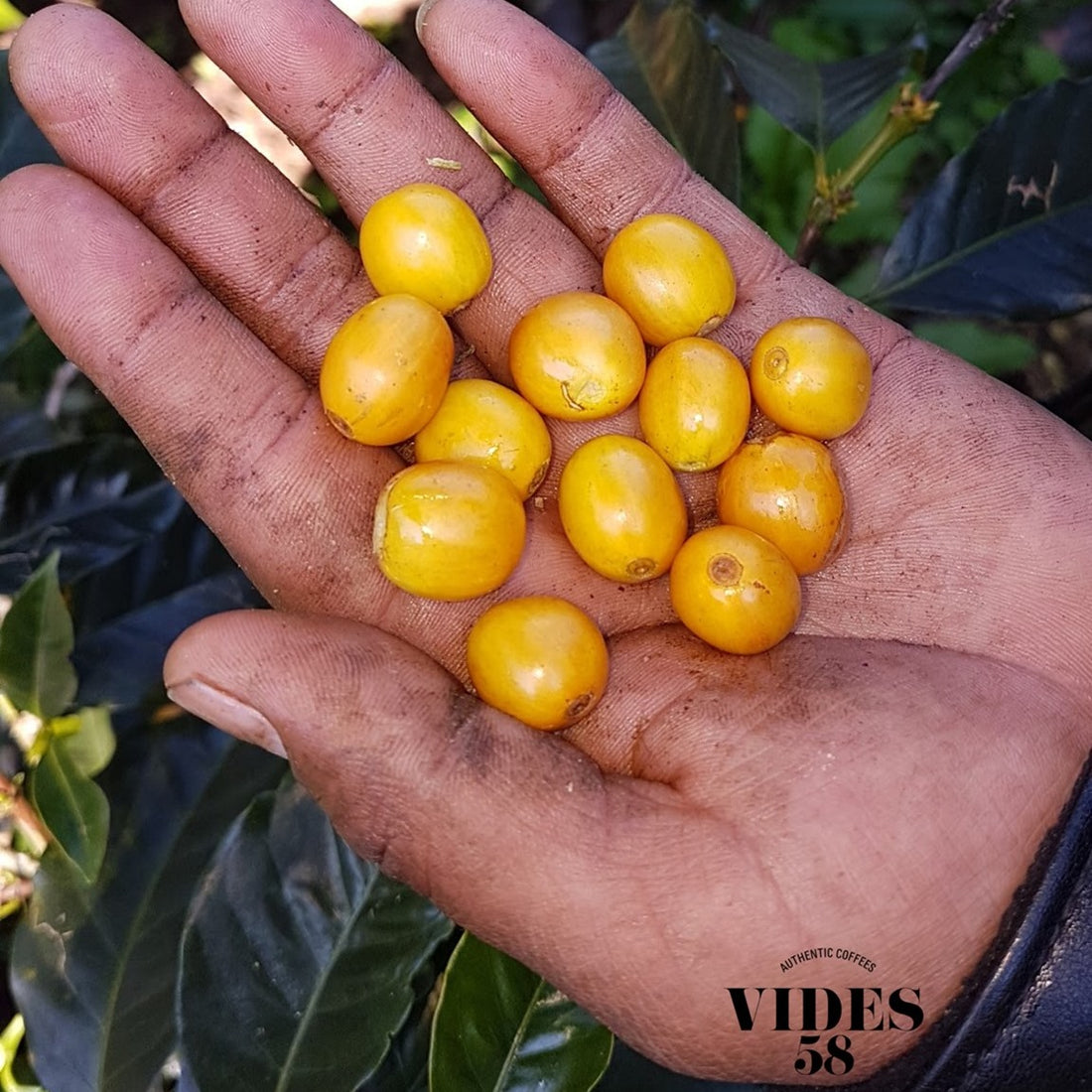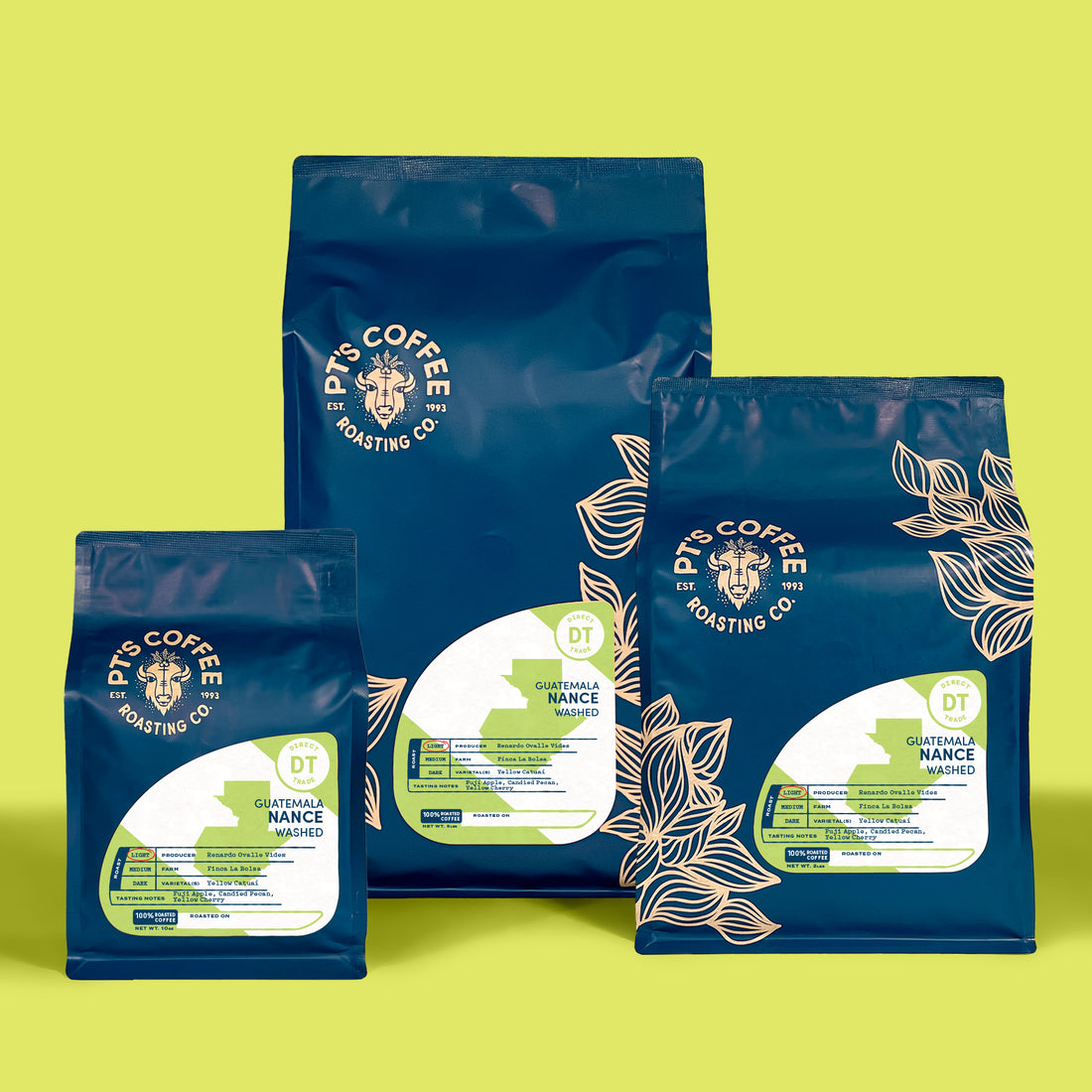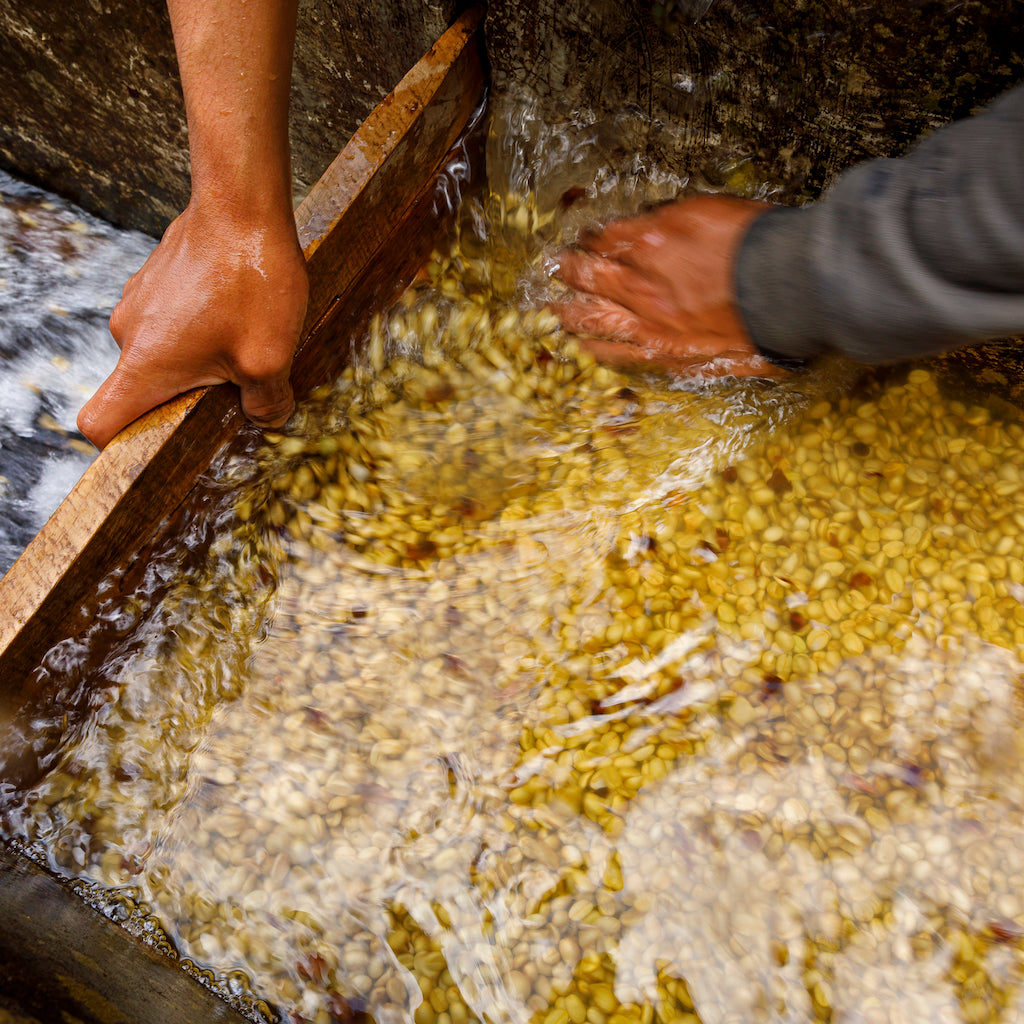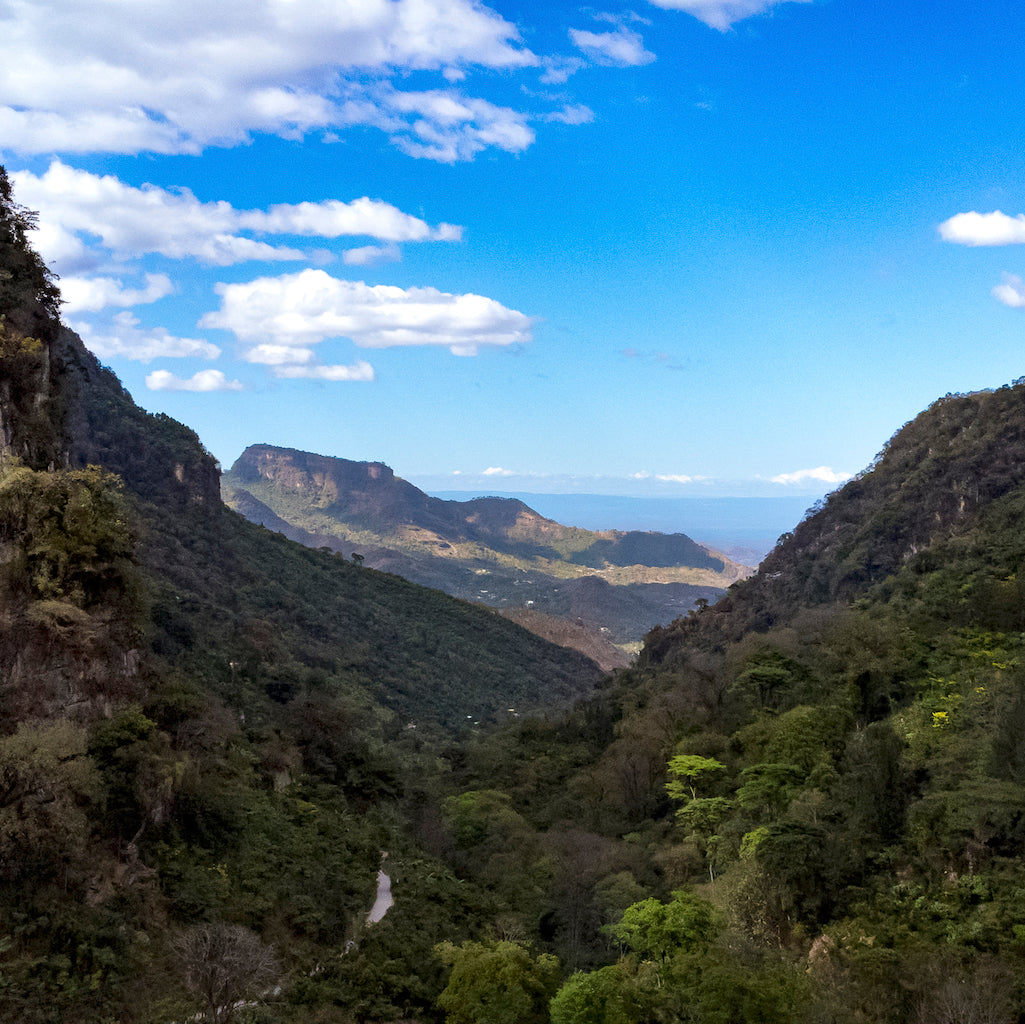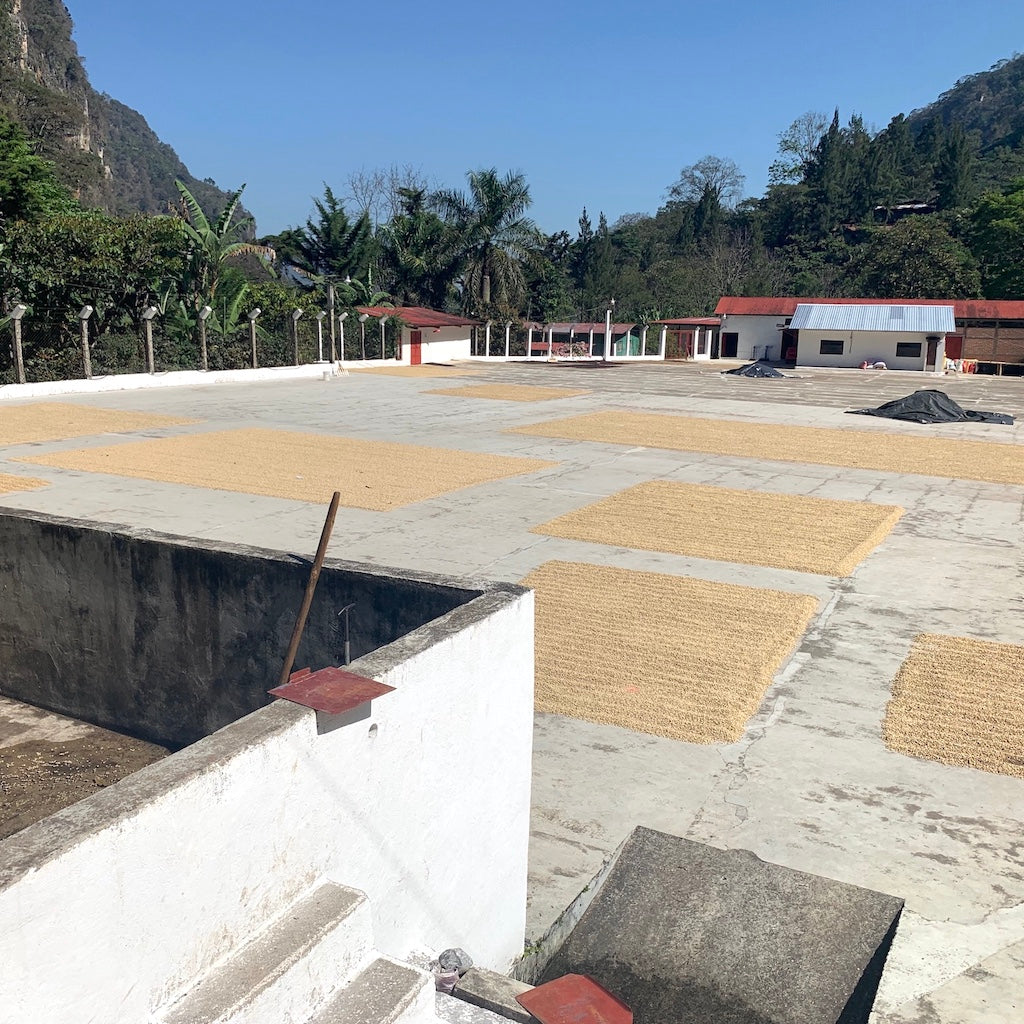Guatemala | Vides58
Nance Washed
Fuji Apple, Candied Pecan, Yellow Cherry
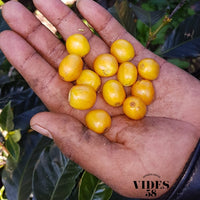
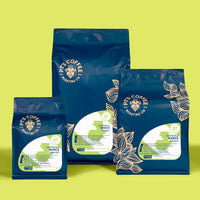
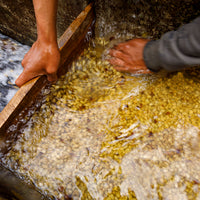
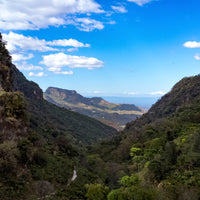
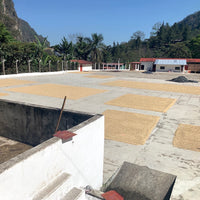
Guatemala | Vides58
Nance Washed
Fuji Apple, Candied Pecan, Yellow Cherry
This complex Yellow Catuaí balances juicy fruit tones with nutty sweetness, beginning with aromas of apricot and butterscotch. Notes of Fuji apple, lemonade, and nougat accompany juicy kiwi acidity in the cup. The finish features chocolate mousse and candied pecan.
Producer: Vides58
Farm: Finca La Bolsa
Region: Huehuetenango
Altitude: 1,450 masl | 4,757 feet
Varietal: Yellow Catuaí
Process: Washed
Roast: Light
Notes: Fuji Apple, Candied Pecan, Yellow Cherry
Catuaí is a cross between Yellow Caturra and Mundo Novo that was first produced in Brazil in 1949 and introduced to Guatemala in 1970. It has both yellow-fruiting and red-fruiting types. Its small stature makes it highly productive, as it can be planted more densely than many other varieties.
Vides58 named this lot "Nance" because of the yellow cherries' resemblance to the nance fruit.
In 1958, a full-time doctor named Jorge Vides founded Finca La Bolsa, a coffee plantation in La Libertad, Huehuetenango. He worked five days a week visiting patients around the country and began cultivating Bourbon and Caturra as a hobby.
His passion for healthcare led him to become Director of the National Hospital of Huehuetenango, which bears his name today. And in 1980, he founded an elementary school to serve the children of workers on the farm and from the neighboring communities.
Today, Jorge's daughter, Maria Elena Vides, manages day to day operations with her son Renardo. Vides58 aims to achieve sustainability in three areas:
- Social: working together with neighboring communities to support the development of the region.
- Agricultural: agronomists teach local farmers good agronomic practices, with environmentally-friendly priorities based on Rainforest Alliance standards.
- Environmental: conservation of ecosystems by protecting wildlife, efficient use of water, and avoiding deforestation.

